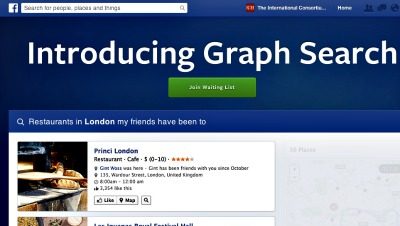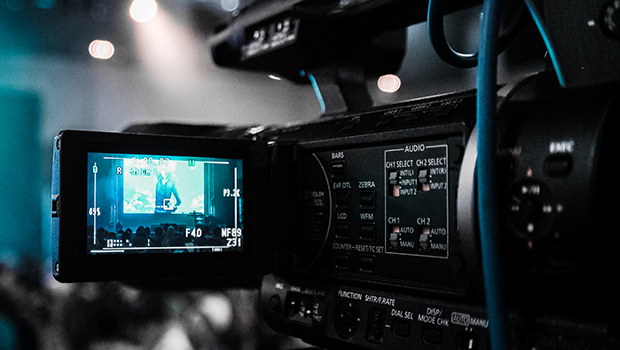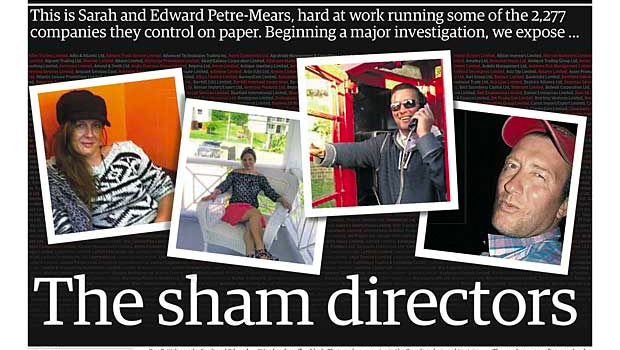Paul Myers is an internet research specialist working in the U.K. media. He joined the BBC in 1995 as a news information researcher. This followed an earlier career in computers and internet experience dating back to the 1970s.
These days, his role sees him organize and deliver training courses related to internet investigation, digital security, social media research, data journalism, freedom of information and reporting statistics. His techniques have helped his colleagues develop creative approaches to research, conduct their investigations securely and have led many journalists to information they would never have otherwise been able to find. He has worked with leading British T.V. & radio news, current affairs, documentaries and consumer programs. he recently spoke with ICIJ for its “Secrets of the Masters” series.
What is the role of the researcher in the investigative story?
I think researchers can dedicate themselves to the minutiae in a way that investigative journalists can’t because journalists have to take an overview. Researchers have special brains that can ferret out significant details and lines of attack, that can reveal the facts and players, that can make connections. We are tenacious information gatherers. We are journalists, too, but we are specialists. It’s like knocking out a tune on the piano. Everyone can play Chopsticks, but not everyone can play Chopin.
In terms of an investigation, the journalist does much more of the initial groundwork. I come in later on in the story where we have to prove links between organizations and individuals. I pry data out of companies and government departments and find people.
The roles are symbiotic.
What I’ve done is try and take what exists at the moment and find a new angle on it. Try and find Narnia in the wardrobe — thinking of a brilliant key word, an angle, use the uniqueness of your brain to find stories no one else has found.
Internet and social media are the tools. The thing that makes it happen is your own imagination.
Around the world, I don’t think there are that many of us doing investigative research. There are a number of investigative journalists, but not many investigative researchers.
What is the path that led you to investigative journalism?
My background is in computer science. I’ve been using computers since 1978.
I had two passions, computers and music. I had a company that was printing t- shirts for pop groups. One of the people working with me got a job as an information researcher in the cuttings library at the BBC. I wanted to do that.
I started working in the cuttings library, cutting up bits of newspaper and filing them. And all the time I knew I had this computer knowledge.
I started using the web in 1993. In the newsroom, the Internet was not taken seriously. We had to use LexisNexis and FT Profile. We were told you can’t use the web because it’s not reliable. But then they found out it was free. That’s how I got into training, just because I had that computer background. So I bridged both worlds: having a computer background, and a nerdy mate who worked for the BBC.
I was always into information. The computer thing was a means to an end. It was about the information.
Share a story you pursued and the impact it had.
There were a couple of stories involving Internet trolls. These were people doing nasty things online, upsetting families of the recently deceased.
It really stopped their behavior and helped in a wider scale. I think that the resulting TV programs helped change the culture or at least made people aware of people who used anonymity to abuse people in the digital landscape. I did the detective work to find out who they were. Some people were arrested. Others weren’t. Seeing the program brought to them the damage that they do, the hurt that they cause. I think it helped convince people who might have become involved.
As a trainer, how do you see journalists’ research skills have changed over the years?
My specialty is online research. The skills are becoming more familiar. The terminology is becoming more familiar. 10 years ago, I was still teaching “what is an IP address?”
I was very worried about giving away the crown jewels, that they wouldn’t need me anymore. More reporters are walking down the avenues of research, getting the researcher brain. But they just don’t have the time. Showing people how to do things allows them to see these things can be done. They come back to you. It’s been good karma to share things.
We’re getting new sources of data the whole time. It’s like police being able to open up old cases from the past because of DNA technology.
We’re getting new apps the whole time that can work with information that’s been out there. For example, ICIJ’s Offshore Leaks database. Now you can go back to a story that was there before Offshore Leaks and find more.
How do you keep up with new tools and online services?
The digital landscape is always changing. The information researcher’s job is to keep up.
Sometimes you need to use deception … I’m the least paranoid conspiracy nut in the world, but I have detected monitoring.
I hang around dysfunctional areas of the Internet, like hacker forums, looking out for technology that can be adopted by journalists, things that were not meant for us.
For example: In the mid to late 1990s, I started teaching about Whois. Whois searching was used by people selling domain names but I used it because I needed to investigate the people behind web sites. I’m always finding tools that were not meant for us.
What are some tips and tools journalists can use?
I’ve found ways to hack Facebook search.
For example: In Europe we’ve just had elections. Smaller parties have just gained success. Facebook forms do not allow you to enter the names of smaller parties. You can find Conservatives who “like” this or Liberals who “like” that but I can’t search for the United Kingdom Independent Party (UKIP) or French National Front in the dropdown box.
You can fiddle with the Facebook code. Looking at the web address generated when you do a Facebook Graph Search, you can take out code used for Conservatives’ political view and replace it with the code for a smaller party.
A search for “conservatives who like the Beatles” turns up a URL that looks like this:
https://www.facebook.com/search/104082972962342/users-political-view/691…
You will see in the address a great big number. The first long number (“104082972962342″) is code for Conservatives.
Now do a search for the UKIP and find the long number:
https://www.facebook.com/search/209101162445115/stories-topic
Find the code, copy it and replace the Conservative code with the UKIP code.
https://www.facebook.com/search/209101162445115/users-political-view/691…
The result: People who hold UKIP political views who like the Beatles.
You need to learn the way these searches work. Find friends of a person and friends of friends of friends.
That’s very clever! But what if a person’s Facebook wall is kept private?
The wall may not be open but it doesn’t mean they are not posting to open areas.
Search Facebook via Google, maybe you can find them on public areas.
In the Google search box add “site:facebook.com” to your terms to search the publicly-viewable areas of Facebook..
Also, friends and family may be less discreet. If all photos are private, find out who possible friends and families are, and see if they have been tagged, like photos of John Smith, etc.
We often get told about things that are on people’s walls and are private. At the BBC, we worry about people’s privacy. If things are private or controversial we have to go through compliance with the EdPol (Editorial Policy) department. You can see the BBC guidelines here.
It’s always clearly in the public interest, in consultation with compliance.
What are some methods you use for Internet investigations?
Sometimes you just need to use deception.
When I’m at the BBC and I visit a web site, I leave a footprint that says “BBC was here.” There are some stories we couldn’t go on with if people realized the BBC was watching them and they went to ground. Sometimes a story will disappear.
You have to search the net through a Starbucks or an anonymous internet connection. It’s necessary to use if you want to get the story, to investigate bad things people are doing or good things people are doing, to bring that into the daylight. You can’t get the story if it scurries away from you. There are levels of deception. Occasionally you have to be a little opaque, and surf anonymously.
Also, we might be worried if we’re working on stories about government department or multinational industries. These are entities that can monitor our communications. Or it might be that we just don’t want web sites to know about us. We might not want to be profiled.
The main reason is not to reveal that their newsroom was visiting a site and the other reason is monitoring. I’m the least paranoid conspiracy nut in the world, but I have detected monitoring.
Tools for Internet investigations:
To protect browsing, use a virtual private network (VPN). You can find them online. Some are paid, some are free.
TOR is the main free one. You download a program and a special version of Firefox. With Tor none of the websites that you visit know who you are. Your browsing goes through a number of randomized computers. …It’s like wearing a disguise on Halloween and wearing another on top of that and another. It takes longer but we’re spoiled these days.
If you’re using a virtual private network then they won’t be able to see where you’re surfing but they could be searching your emails. If you encrypt then the authorities might not be able to see what you’re sending. But they will see other things like message titles and they may monitor your recipients.
For an understanding of encryption, I recommend the Wikipedia page on Pretty Good Privacy (PGP).
What is your advice for young researchers and reporters?
Gain confidence with using changing technology. Be comfortable with it.
Don’t get complacent. Don’t rest on your laurels. Always try to adapt to the changing landscape.
This is really about networking, for example the members of ICIJ. I learn a lot from people who do what I do, by communicating on Facebook, by not being an island. By sharing things with our colleagues, not wanting to keep it secret.
More useful day-to-day tips for researchers and web users:
ICIJ member Paul Radu’s Investigative Dashboard offers lot of useful tools.
I always use private lists in Twitter. Instead of following people, I keep their feeds in private lists so people don’t know that I’m following their tweets. I keep my twitter feed just for tweeting out resources.
Save everything: The one tool I do use again and again is Snagit for screen grabs.
On Facebook, highlight a Friends list and dump it into a Word doc.
When you save pages, go back into it and see if it works. If it hasn’t worked change to another browser. Or just copy and paste.
Paul’s website, ResearchClinic.net, provides journalists with practical information links, apps and resources to help their research.
You can read Paul’s complete profile here.




